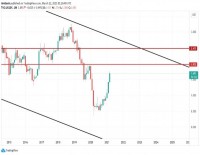|
The implementation of AIFM this summer is certainly one of the greatest challenge of the european hedge fund industry. As we are publishing this edition, we do not have yet all the elements in hands to get a clear vision on the short term impact on the fund managers. However, we have looked at the AIFM implementation guidelines in the UK and in France, trying to adress how the two countries adress such regulatory issues. France : feedback from the AMF, Edouard Vieillefond at the latest Opalesque Roundtable in Paris. (The complete document can be downloaded on: www.opalesque.com). We have been helping a lot technically to redraft the Code monétaire et financier alongside the French Treasury, as we did for UCITS IV. And we have had to do it with the deadline in mind, because the ordinance implementing the directive into French law will have to be published no later than July 31st. People often think that the AIFM directive is only targeted at hedge funds, which is far from true, particularly in France. About two thirds of our 600 French asset management companies will eventually be AIFM authorized and the majority of funds domiciled in France are not UCITS and will fall under the category of AIF, which is something people don't realize. These actors are already subject to national regulation and supervision, regardless of the AIFMD. Also, one should keep in mind that this directive was originally one of the responses of Europe to the G20 following the crisis. From the outset, AIFMD was a directive aimed primarily at addressing systemic risks (through enhanced reporting, regulators' power to set a limit to funds' leverage). Fostering competition and opening the European market (through the passport for management and marketing activities) only came second in the minds of legislators. Against this background, it is worth noting that a number of provisions in AIFMD are directly inspired from the French regulation framework. Actually this is one of the reasons why generally speaking French asset management companies will have it easier to adjust to it than some of their European competitors, because already comply with many standards it contains. The rules on depository provide a good example: both in AIFMD, and tomorrow in UCITS V, they are very much inspired by French rules, as these have been widely acknowledged as protective and efficient. There are other examples, such as valuation or the prevention of conflicts of interests. So the bottom line is that managers will have to adapt to certain new requirements (reporting, liquidity management etc.) which are a consequence of the crisis, but overall it is not for French asset managers that the gap to bridge is the widest. Then my second point is that - similar to what we did when implementing UCITS IV back in 2011 - we have tried to take advantage of the implementation of AIFMD to try and simplify a number of things and make the environment more businessfriendly and simpler. As you probablyknow, we have tried to simplify fund denominations in the Code monŠtaire et financier, merge together or rebrand certain exiting vehicles, and better delineate between retail and non-retail vehicles. We have also simplified the subscription thresholds for retail and professional investors across our existing AIF. My last point is that the implementation of AIFMD (and later UCITS V) should not distract asset managers from other pieces of European legislation like EMIR and MiFID 2 which will have a huge impact on asset management as well. Questions of consistent articulation between these texts may raise some important issues, because, to be frank, they seem to have been thought “in silos” to some extent, without cross-examining their consistency with one another. For instance, EMIR concentrates counterparty risks in OTC derivative transactions at the level of central clearing houses, whereas UCITS sets rules for spreading that counterparty risk. The status of securitization vehicles across AIMFD and EMIR is another interesting issue. So, at the end, I think there is a lot of progress to be made at international and european levels, to ensure that those regulations are consistent with each other and that they create an overall environment that is favorable to the asset management industry. We must also remind those in charge of addressing the shadow banking issues, that entities from the asset management world which are part of shadow banking are already heavily regulated in Europe, something that some regulators, notably banking regulators, don't realize enough. |
|
This article was published in Opalesque UCITS intelligence.
|





 RSS
RSS













